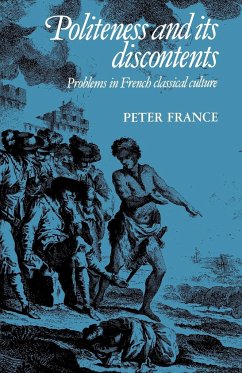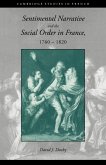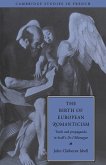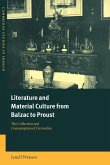This is a study of the place and nature of the ideal of politeness in seventeenth- and eighteenth-century writing in France, Britain and Russia.
This is a study of writing of the seventeenth and eighteenth centuries, mainly in France, but also in Britain and Russia. Its focus is on the establishing and questioning of rational, 'civilized' norms of 'politeness', which in the ancien régime meant not just polite manners, but a certain ideal of society and culture. Within this general context, a series of familiar oppositions, between polite and rude, tame and wild, urban(e) and rustic, élite and popular, adult and child, reason and unreason, gives the initial impetus to enquiries which often show how these opposites interpenetrate, how hierarchies are reversed, and how compromises are sought. Polite society, like polite literature, needs and desires its opposite. The ideal is often the meeting of garden and wilderness, where the savage encounters the civilized and gifts are exchanged. Professor France points to the centrality, but also the vulnerability, in classical culture, of the ideal of 'politeness', and his discussion embraces revolutionary eloquence and enlightened primitivism, the value of hyperbole, and the essay as a form of polite sociability.
Review quote:
"These well-crafted essays are particularly valuable for their breadth of scholarship and for the attention paid to minor writers or less well-known works of major figures....Politeness and Its Discontents is a valuable...contribution to the debate over the meaning and legacy of the Enlightenment."
Julie C. Hayes, Eighteenth-Century Fiction
Table of contents:
Acknowledgements; Introduction; Part I. Excess and Unreason: 1. Hyperbole; 2. Ogres; 3. Myth and modernity: Racine's Phèdre; Part II. Enlightened Sociability: 4. Polish, police, polis; 5. The sociable essayist: Addison and Marivaux; 6. The commerce of the self; 7. The writer as performer; 8. Beyond politeness? Speakers and audience at the Convention Nationale; Part III. Confronting the Other: 9. Translating the British; 10. Jacques or his master? Diderot and the peasants; 11. Enlightened primitivism; 12. Frontiers of civilization; Notes; Index.
Hinweis: Dieser Artikel kann nur an eine deutsche Lieferadresse ausgeliefert werden.
This is a study of writing of the seventeenth and eighteenth centuries, mainly in France, but also in Britain and Russia. Its focus is on the establishing and questioning of rational, 'civilized' norms of 'politeness', which in the ancien régime meant not just polite manners, but a certain ideal of society and culture. Within this general context, a series of familiar oppositions, between polite and rude, tame and wild, urban(e) and rustic, élite and popular, adult and child, reason and unreason, gives the initial impetus to enquiries which often show how these opposites interpenetrate, how hierarchies are reversed, and how compromises are sought. Polite society, like polite literature, needs and desires its opposite. The ideal is often the meeting of garden and wilderness, where the savage encounters the civilized and gifts are exchanged. Professor France points to the centrality, but also the vulnerability, in classical culture, of the ideal of 'politeness', and his discussion embraces revolutionary eloquence and enlightened primitivism, the value of hyperbole, and the essay as a form of polite sociability.
Review quote:
"These well-crafted essays are particularly valuable for their breadth of scholarship and for the attention paid to minor writers or less well-known works of major figures....Politeness and Its Discontents is a valuable...contribution to the debate over the meaning and legacy of the Enlightenment."
Julie C. Hayes, Eighteenth-Century Fiction
Table of contents:
Acknowledgements; Introduction; Part I. Excess and Unreason: 1. Hyperbole; 2. Ogres; 3. Myth and modernity: Racine's Phèdre; Part II. Enlightened Sociability: 4. Polish, police, polis; 5. The sociable essayist: Addison and Marivaux; 6. The commerce of the self; 7. The writer as performer; 8. Beyond politeness? Speakers and audience at the Convention Nationale; Part III. Confronting the Other: 9. Translating the British; 10. Jacques or his master? Diderot and the peasants; 11. Enlightened primitivism; 12. Frontiers of civilization; Notes; Index.
Hinweis: Dieser Artikel kann nur an eine deutsche Lieferadresse ausgeliefert werden.









